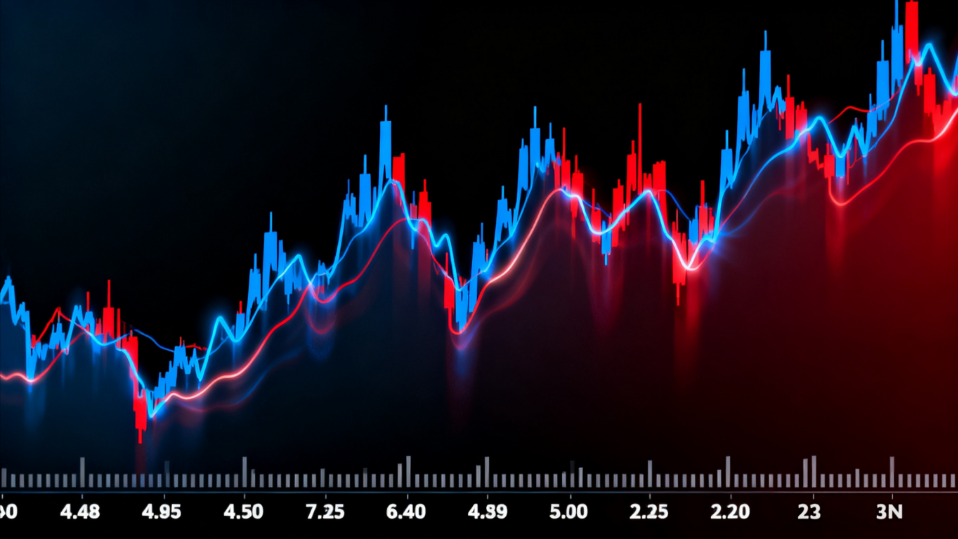
This week's crucial two-day stretch will likely determine the trajectory of the US stock market for the remainder of the year. On Wednesday and Thursday, five companies accounting for roughly a quarter of the S&P 500's weight – Microsoft (MSFT.US), Google parent Alphabet (GOOGL.US), Meta (META.US), Amazon (AMZN.US), and Apple (AAPL.US) – are set to report their earnings. Beyond offering a glimpse into the health of their businesses (spanning areas from cloud computing and e-commerce to electronics and digital advertising), investors will be keenly focused on their outlooks for artificial intelligence development.
Investment in AI technology has fueled the bull market of the past three years, but questions about when these companies will see returns on these investments are threatening to dampen investor enthusiasm.
"This week will determine whether this rally continues or takes a pause," said Talley Leger, chief market strategist at Wealth Consulting Group, which manages $5 billion in assets.
So far, the earnings season has started strong. More than a quarter of S&P 500 companies have reported, with about 85% surpassing Wall Street expectations, marking the best performance in four years. Data indicates this shows the current positive trend.
This performance has helped alleviate concerns about US-China trade tensions and credit risk in the US banking system. It has also fueled a rebound in the S&P 500, bringing the index back near record highs. A selloff in early October had triggered the index's worst week in nearly five months, but this rebound has restored it to levels close to its peak. The so-called "Magnificent Seven" (including the five companies reporting this week plus Nvidia (NVDA.US) and Tesla (TSLA.US)) account for nearly half of the S&P 500's gains this year.
However, to maintain this momentum, investors are looking for assurances from the tech giants that the billions of dollars flowing into building computing infrastructure will continue and ultimately pay off in the future.
According to data, Microsoft, Alphabet, Amazon, and Meta are projected to collectively spend $360 billion on capital expenditures this fiscal year, a significant portion dedicated to AI. Analyst projections suggest this spending will jump to nearly $420 billion next year.
Spending by big tech companies on AI has driven stock price gains this year across numerous industries, from semiconductor manufacturers and networking firms to utilities. Nvidia, the world's most valuable company and one of the biggest beneficiaries of this spending, will report its earnings on November 19th.
Positive Signs
So far, revenue growth from AI-related services has been most evident in the cloud computing businesses of Amazon, Microsoft, and Alphabet, making these segments a focal point in earnings reports. Meta has also stated that its AI investments are improving ad targeting and user engagement in its social media business.
However, spending by these companies far exceeds the revenue currently generated from AI technology. Yet investors have largely given them a pass, bidding up big tech stocks this year on the belief that this spending will position them to dominate as the technology is widely adopted and new AI use cases emerge.
"As long as we don't see any signs of cracks in the AI capex story or the AI earnings story, I think that's enough to support the bull case," said David Lefkowitz, head of US equities at UBS Global Wealth Management, which manages over $450 billion in assets.
However, the massive capital expenditures risk eroding one of the sector's most prized traits: superior profit growth.
Data shows the seven mega-cap tech stocks are expected to post third-quarter earnings growth of 14%, down from 27% in the second quarter. While this growth rate is nearly double the S&P 500's overall expected profit growth of 8%, it would be the slowest pace of growth for the group since the first quarter of 2023.
Nevertheless, big tech has a history of exceeding Wall Street's expectations. Many investors are banking on just that, as these positive earnings surprises are, according to Leger, the "biggest propellant" for the stock market. "It suggests there's plenty of room for estimates to move higher. That's a good omen for the quarter," Leger said.
















